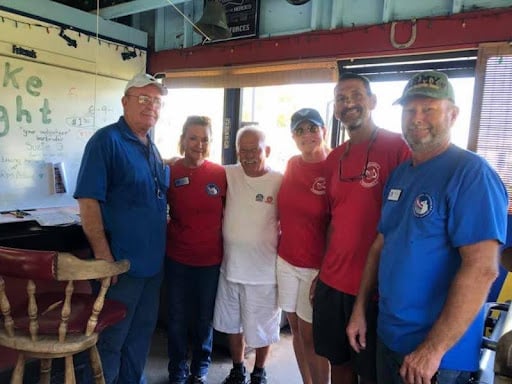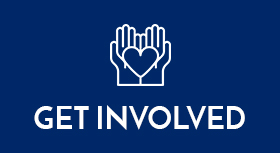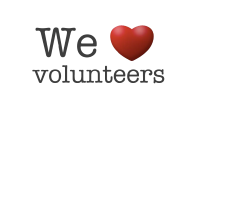Signs of Crisis and How to Help a Veteran in Need
 Stepping out of service and into civilian life can feel like entering a storm with no map. The weight of past experiences, stress, and isolation can press down until dark thoughts begin to whisper. In moments like these, knowing the signs and having someone who truly understands can turn fear into a lifeline and uncertainty into a path forward.
Stepping out of service and into civilian life can feel like entering a storm with no map. The weight of past experiences, stress, and isolation can press down until dark thoughts begin to whisper. In moments like these, knowing the signs and having someone who truly understands can turn fear into a lifeline and uncertainty into a path forward.
National Veterans Homeless Support stands ready to guide veterans, their families, and friends through these turbulent waters. With compassionate insight, practical guidance, and direct connections to life-saving resources, NVHS ensures veterans do not face these storms alone and can find solid ground again.
Every moment counts when a veteran is in crisis. Reach out today to connect with experts who can guide you through life-saving resources, provide compassionate support, and help you or your loved one take the next step toward safety and stability.
How to Identify Signs of Crisis and Distress
Understanding when a veteran may be at risk is the first step in preventing a crisis. Symptoms of suicidal thinking can vary but often include emotional, behavioral, and physical indicators. Some common signs to watch for include:
- Persistent feelings of hopelessness, despair, or worthlessness
- Expressing a desire to die or talking about death frequently
- Withdrawal from family, friends, or social activities
- Increased use of alcohol, drugs, or other harmful coping mechanisms
- Dramatic changes in behavior, mood, or personality
- Giving away possessions or making final arrangements
- Difficulty sleeping, eating, or concentrating
- Extreme agitation, irritability, or emotional outbursts
These signs may appear gradually or suddenly and can differ from person to person. Recognizing these symptoms early allows you to intervene before the situation escalates.
Begin a Conversation That Could Save a Life
Approaching a veteran who may be in crisis requires sensitivity and care. How you communicate can encourage them to open up and seek help. Here are some tips and conversation starters:
- Speak calmly and listen without judgment. Phrases like “I’m concerned about you” or “You don’t have to face this alone” can open the door.
- Ask direct but compassionate questions, such as “Have you thought about hurting yourself?” or “Are you thinking about ending your life?”
- Avoid minimizing their feelings or offering quick solutions. Instead, validate their emotions: “It makes sense that you feel this way given everything you’ve been through.”
- Offer support and connection rather than advice alone. Let them know you are there to help them find resources and guidance.
Using supportive language and active listening can create a safe space for a veteran to share what they are going through and take the first steps toward help.
Acting Fast to Protect a Life
 When you recognize a veteran in crisis, quick action is essential. Immediate steps can include:
When you recognize a veteran in crisis, quick action is essential. Immediate steps can include:
- Calling the Veterans Crisis Line – Dial 988 and press 1 to reach trained counselors 24/7. This line offers confidential support for veterans experiencing thoughts of suicide or emotional distress.
- Texting or Chatting Online – If calling feels difficult, veterans can text 838255 or access chat support via the Veterans Crisis Line website.
- Contacting NVHS – Our team provides guidance, advocacy, and support for veterans in crisis, connecting them to VA resources, counseling, and housing services when needed.
Taking immediate action helps reduce risk and provides a pathway to safety and recovery. Encouraging a veteran to make the first call or sending a message on their behalf can save lives.
You do not have to navigate this alone. Reach out to us now and receive personalized guidance to recognize warning signs, access crisis support, and connect with the care and resources needed to regain hope and control.
Our Team Provides Guidance and Connection
While VA programs are vital, navigating them can be overwhelming, especially during moments of crisis. NVHS offers hands-on support to ensure veterans access the resources they need quickly and effectively. Our
services include:
- Guidance Through VA Programs – NVHS helps veterans understand available mental health and crisis services, making connections to Suicide Prevention Coordinators and counseling programs.
- Immediate Support – We provide direct assistance during times of acute distress, helping veterans access crisis lines, counseling, and emergency housing.
- Ongoing Care Coordination – NVHS follows up with veterans to ensure continued support and connection to services, reducing the risk of future crises.
- Housing and Stability Assistance – Recognizing that housing insecurity can increase risk, NVHS helps veterans access safe, stable housing to create a foundation for recovery.
By providing this combination of immediate and long-term support, NVHS ensures veterans are never navigating a crisis alone.
Recognizing Red Flags and Taking Steps
Family, friends, and community members play a vital role in preventing crises. It is important to intervene when:
- A veteran expresses hopelessness or talks about death frequently
- They withdraw from social or family connections
- They engage in risky behaviors or substance misuse
- They demonstrate drastic changes in mood, appearance, or daily habits
- They show signs of giving away possessions or planning for the end
Even if you are uncertain whether a veteran is in immediate danger, reaching out can provide the support needed to prevent escalation. Early intervention is always better than waiting for a crisis to occur.
You have faced challenges with courage before and that same strength can guide you now. Contact NVHS today to receive clear guidance, practical help, and compassionate support to turn moments of uncertainty into steps toward hope and stability.
Reaching Out When Someone Is Struggling
Approaching someone who may be struggling can feel daunting, but your presence and compassion can make a significant difference. Some strategies include:
- Start with genuine concern: “I’ve noticed you’ve seemed down lately and I want to check in.”
- Encourage them to speak openly about their feelings without judgment
- Avoid offering platitudes or minimizing their experiences; instead, validate their emotions
- Offer practical help, such as contacting NVHS or the Veterans Crisis Line together
- Stay calm, patient, and present, giving them space to express themselves
Your willingness to engage can create a critical connection that opens the door to life-saving support.
Creating a Foundation That Protects Veterans
 Research shows that housing insecurity, financial stress, and lack of social support increase suicide risk among veterans. Combining crisis support with practical stability helps create lasting safety. NVHS helps by:
Research shows that housing insecurity, financial stress, and lack of social support increase suicide risk among veterans. Combining crisis support with practical stability helps create lasting safety. NVHS helps by:
- Connecting veterans to safe and stable housing
- Assisting with financial stress or benefit applications
- Linking veterans to ongoing counseling and peer support networks
- Coordinating care with VA programs to reduce barriers to services
Addressing both immediate crisis needs and longer-term stability strengthens resilience and reduces risk factors.
Building a Circle That Keeps Veterans Safe
Veterans benefit when their friends and loved ones are involved in their care. Family and community support can:
- Recognize early warning signs before a crisis escalates
- Encourage veterans to seek professional help
- Help navigate VA programs, counseling, and supportive services
- Provide emotional support and reassurance that the veteran is not alone
NVHS can guide families and friends in offering support effectively, ensuring interventions are compassionate, safe, and empowering.
Let Us Help You Access the Resources You Need
Your service shaped the lives of countless others, and now it is time to prioritize your own well-being. Moments of crisis do not define you, but the choices you make today can shape your tomorrow. Support, guidance, and connection are not just ideas, they are lifelines that can turn uncertainty into clarity and isolation into hope.
Step into a future where help is within reach. Get in touch with us today and let a team that understands the challenges veterans face guide you to safety, stability, and a renewed sense of purpose. Take that first bold step and turn the page toward a life where every day holds possibility and every moment can matter.
Passionate volunteers continue to help local veterans
Check out the latest NVHS volunteer spotlight in Senior Life Newspaper! R. Norman Moody, May 1, 2021 We know that Brevard County has a large veterans population. And there are many residents who support and are willing to help wherever there is a need among the men and women who [...]
Brevard County opens applications for $18 million COVID-19 rental assistance program
Brevard County opens applications for $18 million COVID-19 rental assistance program Dave Berman Florida Today Brevard County has opened up its application process for a new federally funded emergency rental assistance program for residents negatively impacted by the COVID-19 pandemic. Brevard County Housing and Human Services Director Ian Golden said [...]
Local Business donates to help veterans during Covid 19 Social Distancing
Even in the middle of reduced service due to covid 19, a local brevard bar still is making a point to help homeless and at risk veterans in their local community! Siggy's- An American Bar out of Palm Bay has generously donated $1,000 to help Brevard veterans become and stay [...]






